Welcome to Off the Clock, my weekly column about the stuff I've been doing while out of the office. This weekend, I spent my free time…
Going Home
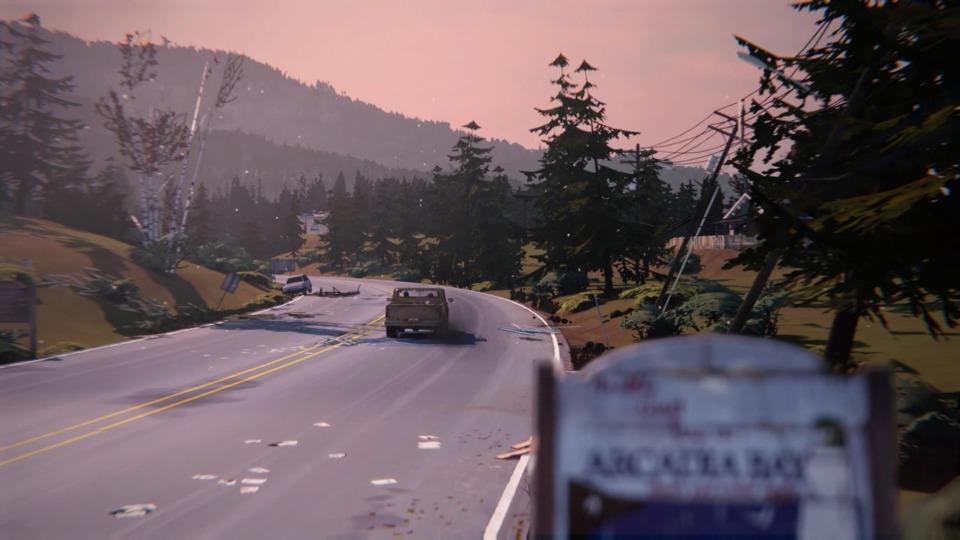
Like many folks in the US last week, I hopped on a bus and made my way down to see my family for Thanksgiving. But in a way, I’ve actually been “going home” since June. I left the east coast back in 2010, when I moved first to southern California and then to Ontario, Canada. This summer I came back to New York to start at Giant Bomb, and when I first arrived I told people that I’d “moved back home.” Now I realize that--since I was away for so long--moving back isn’t an event for me, it’s an ongoing process.
Nearly half a year since returning to New York, I still don’t really feel home. I find myself bumping into old streets I’d forgotten and pressing up against old routines that I can’t quite pick back up. Some old friends have married or moved away or both. Or neither, but we still just can’t make things line up the way they did back then. In some ways, it feels like the home I left isn’t here anymore.
This has been on my mind because I haven’t just been going home in my “real life” recently, but in some of my favorite games of the year, too. Each communicates something differently about what “home” might be.
Max Caulfield from Life is Strange doesn’t only have to contest with teenage drama, violent classmates, and corrupt school officials, but also with her own return to the small northwestern town of Arcadia Bay. Due to Max’s absence, her unattended friendships take on a strained character and her return home also serves as an opportunity to see Arcadia Bay in a new, less naive light. It isn’t the warm little town she remembers, it’s a complicated mess of incestuous politics, class stratification, and threats both supernatural and deeply human.
At a broader scale, the fantasy strategy-tactics game Massive Chalice tracks a country over the course of generations, providing a (sometimes goofy, sometimes melancholy) perspective on the way we create what “home” means to us via a sort of national myth-making. Is yours the sort of country that exiles those with a touch of corruption, or do you you keep them close? Will your citizens tell stories about the emperor who imprisoned the nation’s greatest warrior due to an indiscretion or about a leader who protected the powerful instead of the weak? Even more mechanically: Do you invest your limited resources in structures that can let one generation’s knowledge carry forward onto the next or in the development of weapons that your soldiers can use right now? Though the game takes place in a world of monsters and magic, it’s hard not to contextualize this style of question in our own world--it is an election cycle, after all.
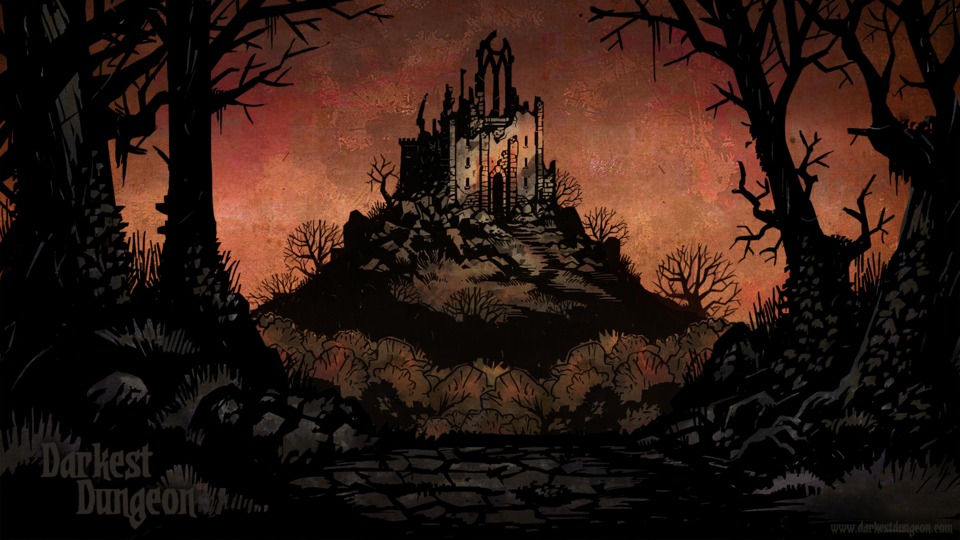
Darkest Dungeon could’ve been a game about exploring a mysterious castle in the wilderness, but instead, it’s a game about exploring your mysterious castle in the wilderness. It uses the well established techniques of Poe and Lovecraft to reframe the home as a place not of warmth and potential, but of undesired responsibility, familial anxiety, and uncanny terror. The old family manor is yours by right, but it is a terrible right to have. You recruit and direct an expendable force of mercenaries, putting them up against monsters, deadly traps, and sins of your family’s past brought to life, all so that you may recover some vague wealth. This tension is intimate and (despite the horror fittings) deeply relatable: Home is something cursed yet unbelievably valuable, cosmically dangerous yet (therefore?) impossible to leave behind.
This ongoing process of coming home has made me face my own uncanny anxiety.
We use the word “uncanny” to describe experiences that are strange, creepy, and mysterious--yet also familiar. This notion of the “uncanny” has its root in the German “unheimlich,” which means something like “un-secret.” But it isn’t just an adjective, it's not simply “not secret.” Unheimlich is almost a verb: It is de-secret-ing. Uncanny horror isn’t found in a confrontation with the unknowable, it is instead a revelation that something you thought was yours has actually always been terrifying. The films of Alfred Hitchcock and the early Silent Hill games, with their mysterious doppelgängers and askew (re)visions of the past use the uncanny to entice and terrify (Maybe this is why the re-recorded voice acting of Silent Hill HD Collection fell flat for fans. Delivered straight, that dialog didn’t carry the same strange cadence that unsettled players all those years ago.)
Uncanny moments skirt the border between “ironic” and “apropos:” You jump at the appearance of a sudden figure in the distance… only to recognize that it was your own reflection. One hard night, you come to the realization that you’re turning into the person you’ve always hated most. What is familiar, what was once yours, is now deadly, frightening, unthinkable. Yet at the same time, it remains familiar. It is both the old thing that was yours and also this new, terrible thing. In fact, the most uncanny fear comes from the realization that the thing in question didn’t change at all: It was always terrifying, and you’ve only come to see that much, much too late. That’s the real horror: Your home didn’t break, it was always broken and you never noticed.
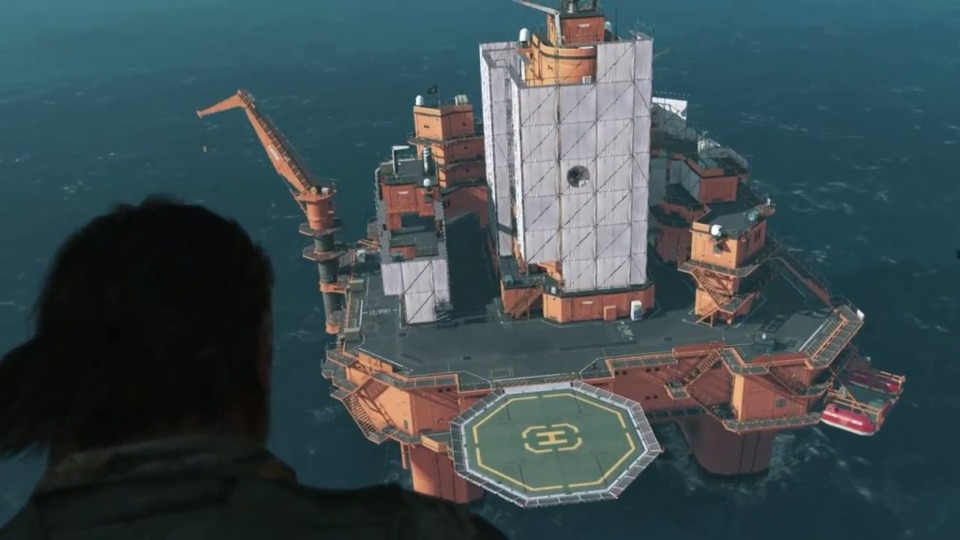
On top of the games this year that coming home a narrative center piece, there have also been a number of titles that ask the player to build homes. Animal Crossing: Happy Home Designer is the first in the series to focus on decorating the homes of others--players are given a basic design prompt (“A room with a lovely atmosphere,” “A classroom”), a catalog of goods to use, and a lot of freedom to build whatever they want. Happy Home Designer didn’t gain the traction that other Animal Crossing games did, but that doesn’t surprise me too much. Previous games in the series are just as free-form in terms of player objective, but they mete out decorations at a slow rate, gated by the amount of money the player has and simply by what items are up for sale any given day. On top of that, Happy Home Designer focuses on filtering the needs of others through your own aesthetic taste--and that isn’t a pleasure that many of us have been trained to enjoy. Other Animal Crossing games make a more direct proposal: This is your home, if you work hard enough, it can be whatever you want it to be: It is the fulfillment of a familiar cultural promise that, in reality, rarely turns out to be such a simple thing.
Surprisingly, it was the home-building of two big-budget action games that most captured me this year. Metal Gear Solid V: The Phantom Pain centers around the creation and expansion of “Mother Base,” an offshore facility where the player organizes and operates a paramilitary force. I say “centers” not only because Mother Base is an important part of the game’s story, but because so much of MGSV’s appeal for me was the cycle of action: Walk around my home base; decide on the direction of expansion and research; manage my team of scientists, engineers, and soldiers; fly out to the field to do some missions; try out some of the new tools I’d developed; collect the resources I needed to expand Mother Base further; head home; repeat to the tune of Love Will Tear Us Apart.
Part of my enjoyment came from how the base-building lined up with some of the game’s themes. MGSV explores the modern historic moment where the management of data and the control of language became as (if not more) powerful than sheer military force, and the game’s meta-structure puts the player in the role of someone making that transition. But I enjoyed the base-building way before I started thinking about its thematic implications. I get that other folks didn’t engage with that “loop” of play as much as I did, but as much as the game’s gunplay and stealth action, it was this rhythm that drove me to play the game for dozens of hours.
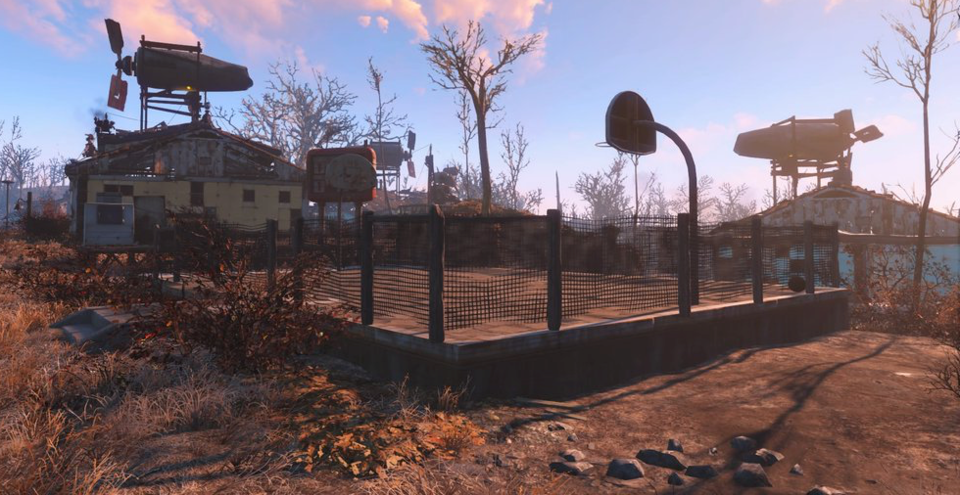
In the past few weeks, Fallout 4 has presented a similar pattern of play for me, but where The Phantom Pain only let me increase my base’s statistics, Fallout 4 lets me develop its aesthetics too. Through a collection of (often unintuitive) crafting mechanics, I’ve been able to slowly transform a little corner of post-apocalyptic Massachusetts into my virtual homestead. Fallout 4 isn’t the only game that offers home building--in the wake of Minecraft’s once-a-decade degree of success, dozens of game makers have been playing with similar crafting systems. But it does a few things that those other games haven’t been able to do in the same way.
Fallout 4 is dense in a way that most other open world survival/crafting games aren’t. It isn’t just wilderness ready to be picked over for resources. It’s a geography filled with buildings which are filled with items which are filled with component parts, each of which exist inside of narrative or world-building contexts. It’s often the case that those contexts are themselves about differing styles of home-making: The merchant town of Bunker Hill buys its way out of trouble with wealth. Diamond City maintains a massive wall (both physical and ideological) to keep invaders out. The inhabitants of the USS Constitution define their home as a place of inevitable progress: They have a place to be and one day they’ll get there, which makes any current strife manageable.
Each of these places (as well as all of the many shacks, warehouses, and abandoned stores of the wasteland) are filled with “junk” items to be taken. In the previous two Fallout games of the Bethesda era, the most exciting “junk” item for me to find was a case of cigarettes: It was light and worth a lot of money. Now, everything has value: A crummy jacket is worth its weight in leather. A clock has glass, steel, and maybe even a few screws. Because items break down into component parts that I can use to upgrade my equipment and my home, instead of asking “What’s this worth?” when I find some random item, I’m asking “What can I do with this?”
In Metal Gear Solid V, every precious point of fuel I spend is turned into some mechanical benefit. But in Fallout 4, spending a resource often means a decrease in efficiency. I lose screws and steel and copper so that I can have a row of lights welcome me home when I return from the wastelands. The lights don’t do anything except trigger a small bolt of electricity in my brain that makes me recognize them as familiar, as something that I placed there. The “most efficient” way to play Fallout 4 would be to ignore these mechanics entirely. In the same way, the “most efficient” way to live in a real house is to spend money only on the most necessary of material improvements. Bare walls and empty shelves. What separates a house from a home is a collection of inefficient, emotional investments, and Fallout 4’s settlement system allows you to make these by the dozen, and like MGSV offers you an elliptical route to repeat, again and again, as you turn your houses into homes.
But Fallout 4 misses one key aspect of real homes: The precarity. The risk.
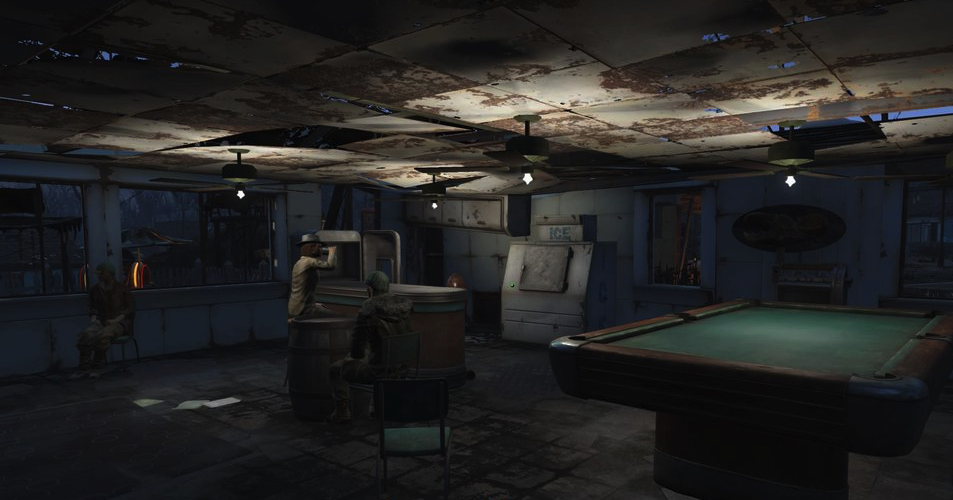
In past Fallout games, little hidden story details revealed that it wasn’t just atomic bombs that ruined the game’s retro-futuristic America, but also poor decisions made before the war with China went nuclear. In Fallout 4, these details aren’t shoved to the periphery. The intro cinematic calls out the internal problems of commercial and industrial excess that put the country in a position to fail. The game’s brief opening sequence is a mixed bag, but it is most effective when it puts the spotlight on those left behind to face the bomb because corporate whims prevented them access to shelters. There’s a corner of the map is devoted to telling the stories of the final moments of those who witnessed the bombs dropping--but those stories seem as often to be about bureaucratic mismanagement as exterior threat. And yet, this sort of domestic failure isn’t modeled in the game’s settlement system.
There are no internal disputes in the rebuilt suburbia of Sanctuary. No one at Abernathy Farms gets sick. There are threats, but each is external: Raiders, super-mutants, synthetic intruders. You get called home to help fight off bandits, but not because some asshole has been taking more than his share of resources--and those are the sorts of conflicts that my favorite post-apocalyptic stories deal with. Worse none of the external threats can actually harm the physical structures of your Fallout 4 homestead. (For a truly terrifying foe, Bethesda only needed to look at Minecraft’s strange-yet-cute Creepers, which can actually devastate the home you’ve spent hours building.)
Part of having a place to call your own is getting to fill it with things that mean a lot to you. All of those decorations and personal touches that make your home yours: The tchotkes you bring home from vacation; that little jar of coins, overflowing; the unopened text book from that class you forgot you enrolled in. Fallout 4 gives you these--or at least the sci-fi Americana version of them. But unlike that comic collection that your dad sells during a yard sale, you’ll never lose your copy of Grognak the Barbarian #1. The jukebox you spent a couple of hours scrounging up the copper wire for will never break. Half of having a home is being able to return to it, happy to find a familiar sight. The other half is seeing is coming back and seeing that things have changed, for better or worse. But your Fallout 4 home will never change when you’re away.
There will be no surprise diagnoses. No personality conflicts. No familial splintering. No poor spending decisions. No low-hum of boredom, pushing stability ever closer towards the edge.
In this way, Fallout 4’s settlement building resembles the naive (if pleasurable) resource balancing gameplay of the Anno series. As far as I can tell, if I provided each of my settlements with enough water, food, and defense, each would last forever left to its own devices. In fact, the most devastating force in the world of Fallout 4 is the player. Only by advancing the game’s story does the unpredictability of life (and the death that follows) come into play. If you really wanna save the wasteland the best thing you can do is build a perfect equilibrium for your settlements and then walk away.
If only this was how real homes worked.
If only I could set up a system; a Rube Goldberg machine for the home; some sort of a perpetual motion device for familial maintenance. But homes aren’t about efficiency.
My uncanny anxiety isn’t that my home is broken. It’s that even that I’m back now, I can’t really do much to fix anything.
In the five years I spent away, family and friends from home weren’t shy to report on their personal troubles. There was infidelity and economic collapse and violence and there was cancer--again and again, cancer.
As much as I reject the notion of grad school as an “ivory tower” separate from the rest of the world, what it did offer me was an alibi for why I couldn’t help those I loved. It was too expensive to fly down to the States when there was an emergency. When I did visit, I was too busy to stay for more than a few weeks at a time. It let me play an easy and imperative mental trick on myself: The reason I couldn’t help anyone was because I was so far away. It was a useful defense from the truth, which is that sometimes, even when you’re right next door to disaster, you can’t do anything to help.
This was the first Thanksgiving I’ve been home for in five years, and it made me realize a second uncanny truth: It’s not just that home broke when I left, it’s that it was never really “whole” in the way I was letting myself believe it was.
Maybe that’s part of why Fallout 4 has resonated with me this year. In classic post-apocalyptic fashion, many of the small settlements throughout offer you a vision of peace-in-the-wasteland before going on to reveal some terrible truth on which that peace is built. The lesson sticks: For me, at least, there never were any unproblematic “good ol’ days” at home. Just a bunch of problems I was too young--and too unwilling--to see.
But knowing this isn’t some tragedy.
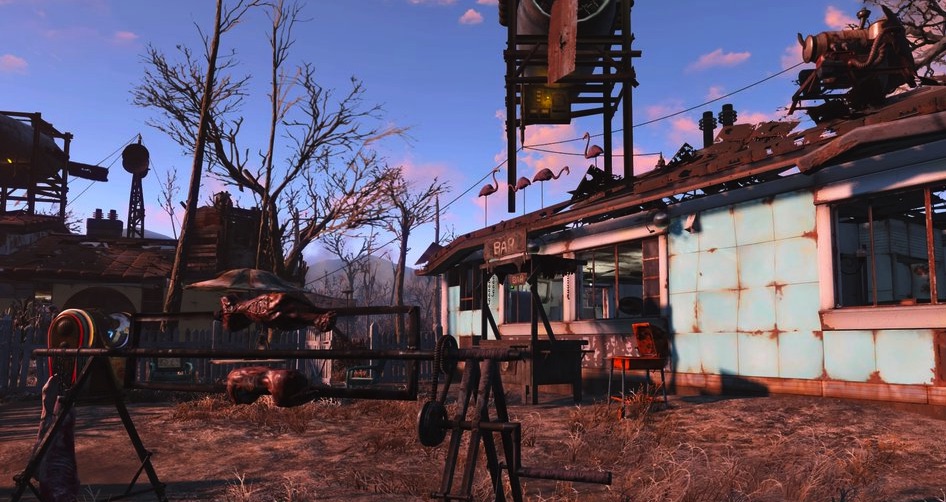
Back when Fallout 4 was first announced, I wrote:
It's easy to dismiss the "post-apocalypse" genre as a nihilistic fantasy of structural decline, lawlessness, and "might makes right" morality. … But there can be another sort of post-apocalyptic story, too, and it's one that I think the Fallout series has managed to deliver in the past. In a story, an apocalypse isn't just an ending, it's a chance to start fresh. Some post-apocalyptic stories burn everything down and then relish in the ashes. Others focus on characters who stand in the destruction and say, "Okay. Now what?"
Right now I’m trying hard to focus on that second sort of story.
So, no, Fallout 4’s version of the home doesn’t have the risk of implosion that real households do, but maybe that’s okay. In a time where so many post-apocalyptic stories are about exploiting (or fleeing) the inevitable decay of society, in a time where so many of our homes--whether personal or national--are in distress, maybe we need more games that let us imagine what a world we'd like to live in looks like.
Things at home aren’t what they used to be, and maybe they never actually were. But okay, now what?
I've also been...
Listening to: Time & Materials by Cavanaugh (Open Mike Eagle & Seregenti)
Watching: Show Me A Hero
Reading: How to Talk about Videogames by Ian Bogost